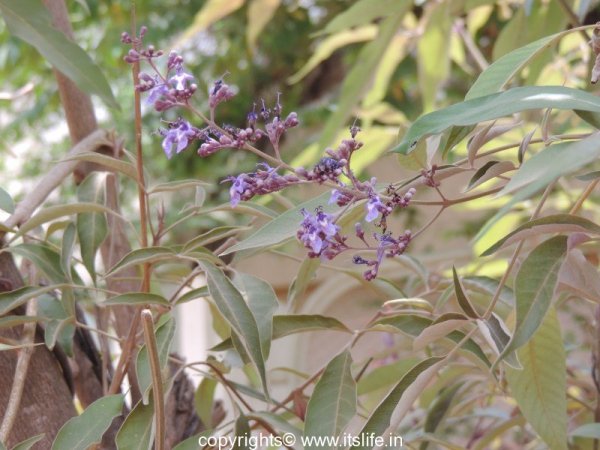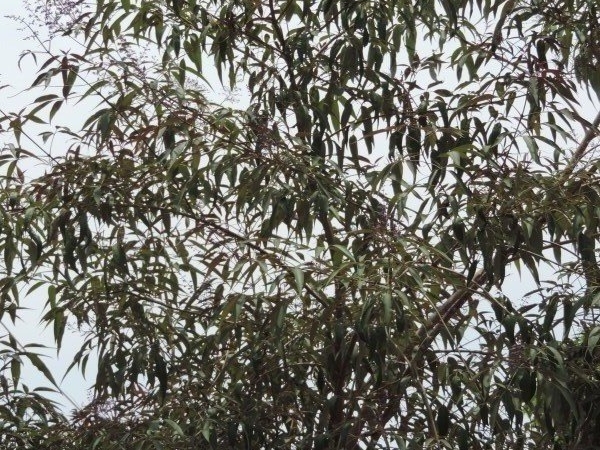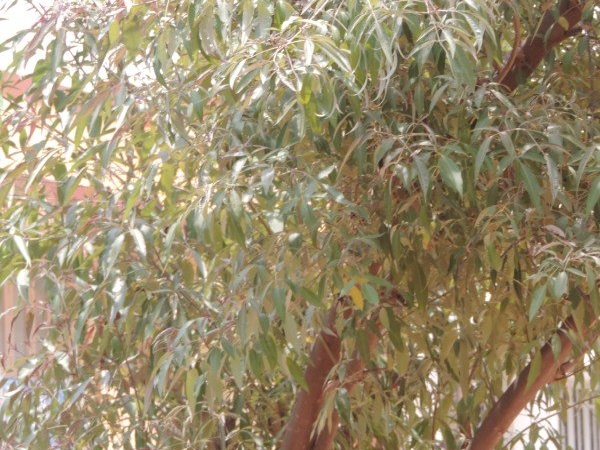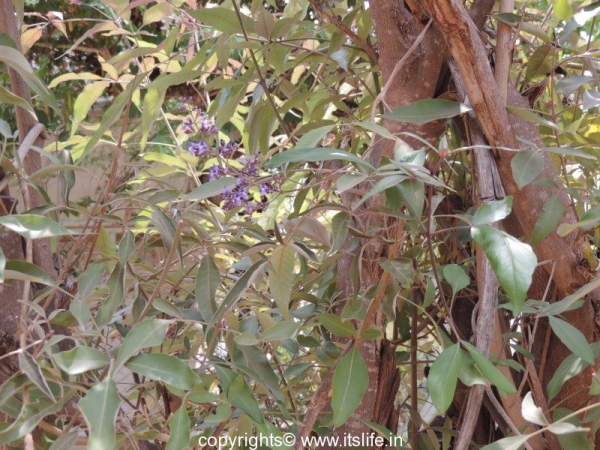In winter, I keep dreaming about the flowering trees of Bangalore-Mysore during spring and summer. One such soothing flowering tree of summer is the Chaste tree.
Chaste Tree is also known as Monk’s Pepper and is a native of the Mediterranean. Other names are Nirgundi and Sindwar in Hindi, Nocchi in Kannada and Tamil, Vavili in Telugu, Sinduvara, Indrani and Nilanirgundi in Sanskrit. The botanical name is Vitex negundo and belongs to Verbenaceae (Verbena ) family. As the part of the plants helps humans to remain chaste, the tree came to be known as Chaste tree.
The Greeks bought this tree to the forefront due to its medicinal properties. Chaste tree is a perennial deciduous tree and grows to a height of five meters tolerant to high and low temperatures.
The mature leaves are Green on the one side and greyish and felted on the back. Young leaves are pale maroon. The leaves have 3 – 5 pointed leaflets and they are used as mosquito repellent.
The scented flowers are small and bloom on 6″-12″ spikes. They bloom during April – May in Mysore – Bangalore region and are white, lavender-blue, or pink-lilac.
Bumblebees buzz around the flowers and spend their nights on the flowers.
After the blooming season, Pepper shaped fruits appear, which are purple black.
Medicinal uses:
There are many medicinal use of Chaste tree and has been effective in treating cough, common cold, flu, asthma, pharyngitis, allergies, wounds, inflammations, menstrual cycle problems, snake bites, diarrhea, and insomnia.
It is used in skin care for moisturizing, firming, and smoothing the skin.
Other uses:
The tree is planted for landscaping and beautification of lanes and roads. Wicker of Chaste tree is used to make baskets since ancient times.
The leaves of Chaste tree is offered to Lord Ganesha during the 21 Patra (leaves) pooja chanting the following mantra: “Om Herambhaya namaha Sindhuvaara Patram Samarpayaami”.
Propagation:
Chaste tree can be easily grown using seeds or cuttings. Plant the seed or sapling in a well-drained and fertile bed in full sun. Feed in late winter with a slow-release application. Prune the tree after the blooming season.





